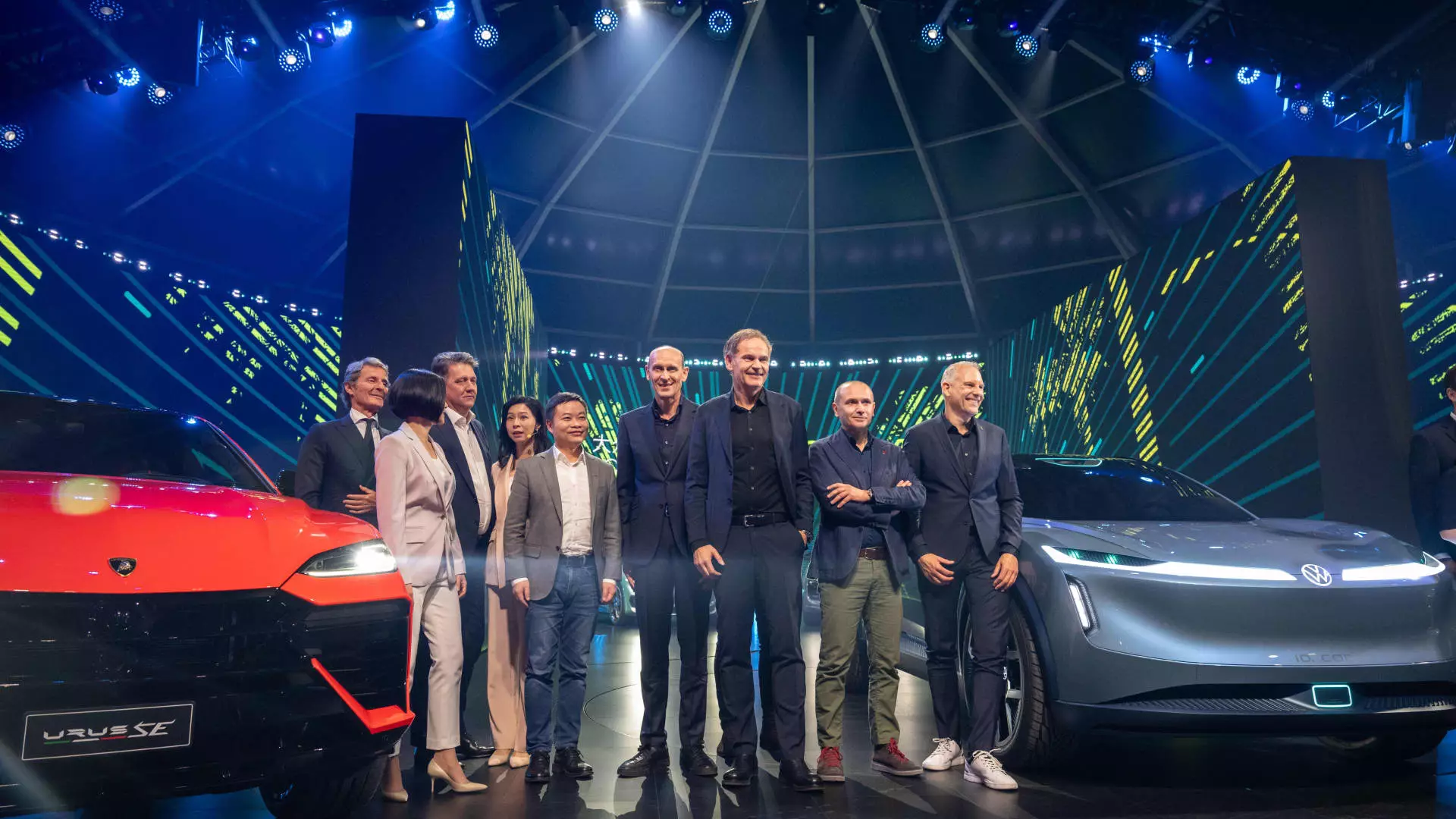In recent years, the automotive landscape has experienced a seismic shift towards electric vehicles (EVs), pushing traditional automakers and innovative startups into strategic partnerships. One of the most intriguing collaborations in this sector is between Volkswagen, the venerable German automobile manufacturer, and Xpeng, a fast-rising Chinese electric vehicle startup. With an ambitious $700 million investment announced in July 2023, this partnership aims to expand their influence in the EV market, particularly in China, where the demand for battery-powered vehicles is surging.
At the heart of this partnership is Xpeng’s advanced technology repertoire, especially its driver-assist systems, which are highly regarded as some of the best available in China. As Volkswagen personnel immerse themselves in Xpeng’s operational culture and technological framework, they gain critical insights that will inform the joint development of electric vehicles slated for release in 2026. Brian Gu, Xpeng’s co-president, emphasized that the forthcoming vehicles will diverge significantly from the existing models offered by both companies. Expectations are that these new models will boast enhanced driving capabilities, longer range, and superior luxury features—all at a competitive price point. This ambition underscores the drive towards not just competing but excelling within the increasingly crowded EV market.
Nevertheless, Volkswagen’s journey in China is fraught with hurdles as it grapples with a noteworthy decline in deliveries—down 19.3% in the second quarter of 2023 year on year. This dip comes amid a vigorous shift in consumer preference toward hybrid and battery-only vehicles, underscoring the urgency for Volkswagen to adapt its strategy. In stark contrast, Xpeng has shown resilience, experiencing a 30% year-on-year rise in vehicle deliveries during the same timeframe. However, it still finds itself outpaced by rivals like BYD and Nio, compelling it to aggressively pursue international markets as a viable growth strategy.
Global Aspirations and Localization Efforts
Xpeng’s aspirations stretch well beyond the boundaries of the Chinese market. The company is actively exploring production sites in the European Union, signaling its intent to localize manufacturing and streamline operations within key markets. Gu revealed that while efforts to establish a presence in Europe are on the horizon, localization endeavors in Southeast Asia might materialize sooner. The startup aims to expand its footprint to at least 40 countries and regions by year-end, marking a significant increase from its current operations in around 30 regions.
The strategic launches of Xpeng in Thailand, Hong Kong, and Macau, as well as imminent entry into markets like Malaysia and Singapore, illustrate its aggressive push towards becoming a global player in the EV sector. This planned expansion not only enhances Xpeng’s brand visibility but also aligns with consumer trends favoring local products in international markets.
Collaborative Synergies
The relationship between Volkswagen and Xpeng is also characterized by collaborative synergies in supply chain management and technological innovation. Their joint sourcing program for auto parts reflects a strategic approach to maximize efficiencies and enhance production capabilities. Moreover, the hands-on exchanges—where Xpeng teams visit Volkswagen’s offices for design and tech discussions—highlight the mutual benefits of this collaborative framework.
Additionally, Gu has hinted at broader aspirations for Xpeng, including investments in robotics that could revolutionize production processes. While it remains uncertain how these advancements will intersect with Volkswagen’s supply chains, the prospect of humanoid integration signals a forward-thinking mindset that prioritizes automation and efficiency.
The collaboration between Volkswagen and Xpeng is a notable example of how established automakers and emerging startups can synergize to navigate the evolving landscape of electric vehicles. As they work towards delivering groundbreaking electric cars, both companies not only aim to strengthen their market positions but also contribute to a sustainable future in the automotive industry. It remains to be seen how this partnership will unfold, but the road ahead promises innovation, competition, and a renewed commitment to meet the challenges of a rapidly changing market.

